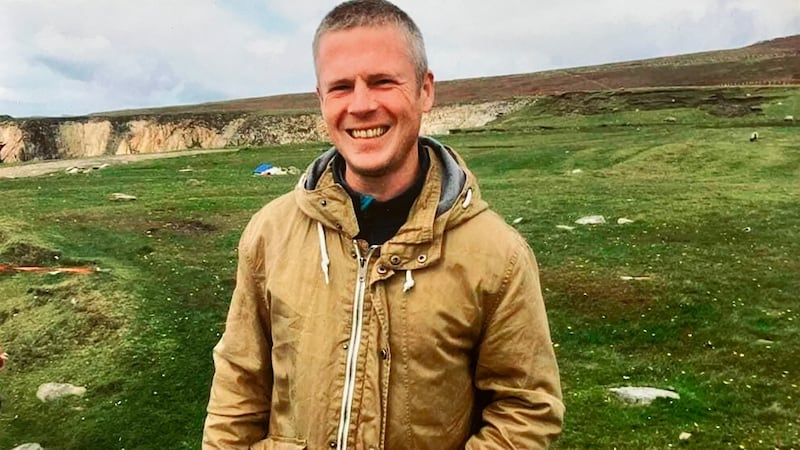The Police Service of Northern Ireland (PSNI) is involved in an experimental research project developing a "swarm" of air, sea and land drones to patrol borders.
The “Roborder” project aims to develop “a fully functional autonomous border surveillance system”, and involves research institutions, defence companies and the police or border agencies from several European states including Greece and Hungary.
The technology will be used to identify and track illegal activities, including unauthorised sea or land border crossings, organised crime activity in remote border areas, and marine pollution detection, according to the project website.

A developer for Roborder previously explained the technologies to the Intercept news website, stating that “the robots will be able to identify humans and independently decide whether they represent a threat. If they determine that you may have committed a crime, they will notify border police.”
The project, which began in 2017 and is due to end in August 2021, received 90 per cent of its €8.9 million budget from the European Union’s Horizon 2020 investment programme, under the “Border security: autonomous systems and control systems” funding stream.
The PSNI has participated in 31 different EU-funded security projects since 2009, substantially more than An Garda Síochána or any other UK police force, and has received more than €5.25 million in total.
PSNI staff sit on the project management board, the main decision-making body for Roborder, as well as its security advisory board.
The Garda is not a member of the Roborder consortium.

A spokesperson for the PSNI said that involvement in Roborder “gives the police service access to leading European research institutes and organisations, enabling us to strategically plan for how these future systems may form part of the delivery of our services to the public”.
“It also allows us to participate in state-of-the-art research, with multiple organisations, allowing us to improve our professional development. To date our work has mainly focused on providing non-technical advice to research partners – for example, on how the products developed may be used.”
Privacy concerns
Prof Katy Hayward, a political sociologist at Queen’s University Belfast, said the potential use of drone technology in “a post-conflict region with historical experience of military surveillance (such as that around the Irish Border) is a development that should be properly scrutinised, not least to enable legitimate questions about privacy, data and purpose to be answered”.
Research at Queen’s from 2019 found that one in three people would find it “almost impossible to accept” drones at the Border in the context of Brexit.
The PSNI has used drones within Northern Ireland since 2013. They were originally purchased as part of preparations for the G8 summit held in Enniskillen, Co Fermanagh, to combat large-scale protests, which did not materialise.
In relation to Roborder, a Northern Ireland Policing Board (NIPB) spokesperson said “the board is not routinely advised of EU research projects that the PSNI are partner to”.
“In the use of small unmanned aircraft (SUA), the PSNI must fully meet ECHR (European Convention on Human Rights) requirements and report to the board accordingly. There have been no reports to the board to date regarding the use of SUA by PSNI in support of Roborder. SUA use by the PSNI is reviewed and reported on in the board’s human rights adviser’s annual report.”
The PSNI is listed as a participant in various Roborder work programmes, including “pilot test cases”, “detection and identification of border-related threats”, and “demonstrations and evaluation” of prototypes. The EU contributed €217,500 to the PSNI for the force’s involvement in the project.
The project’s website includes information on a number of pilot case studies, including along the Irish Border, and others in Greece, Bulgaria-Turkey and Italy. However, the pilot project in Northern Ireland – which was to have law enforcement authorities from the North and the Republic “deploy Roborder technologies in order to undertake improved surveillance operations for criminal activities recognition” – did not take place.
‘Threat to people’
Roborder’s technical manager Konstantinos Ioannidis told investigative website The Detail that a pilot simulating conditions to those in the Northern Ireland case study would take place at a different location in the future. Mr Ioannidis said that a number of demonstrations – delayed due to the pandemic – were yet to be carried out.
He said that by the end date of the project, a successfully demonstrated prototype would be developed, but at a level just below the stage of being commercially ready. He said that the final prototype was under evaluation.
A number of human rights groups have raised concerns about the technology being developed by Roborder.
“If such a system were deployed it would pose a huge threat to people,” said Edin Omanovic, advocacy director at Privacy International.
“There have been credible, numerous and consistent reports about abuses carried out by European border police against people looking for better lives: empowering these same units with advanced swarms of surveillance drones risks facilitating not only unlawful surveillance but other abuses.”
Mr Omanovic also voiced concern at the development of drones “capable of indiscriminately intercepting mobile phone signals”. Citing international human rights law, he said: “You simply cannot monitor an entire border region just because you have the technology.”
The PSNI, Roborder and a spokesperson for the European Commission all stated that the research followed the highest ethical and legal standards.






